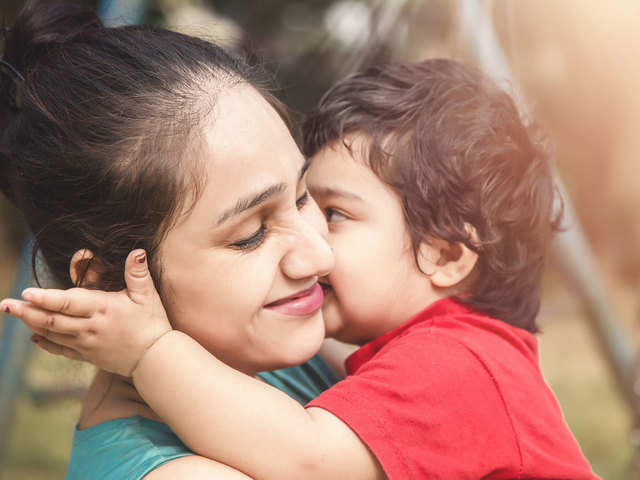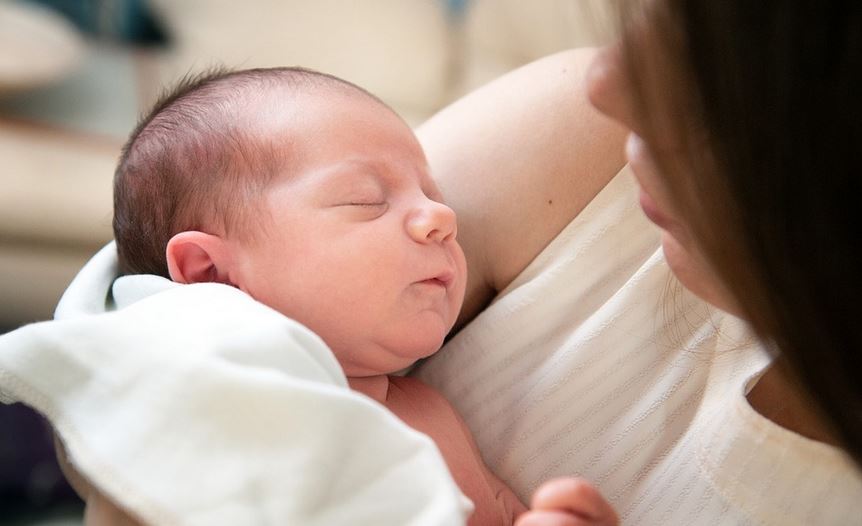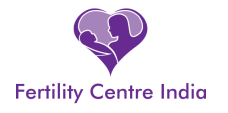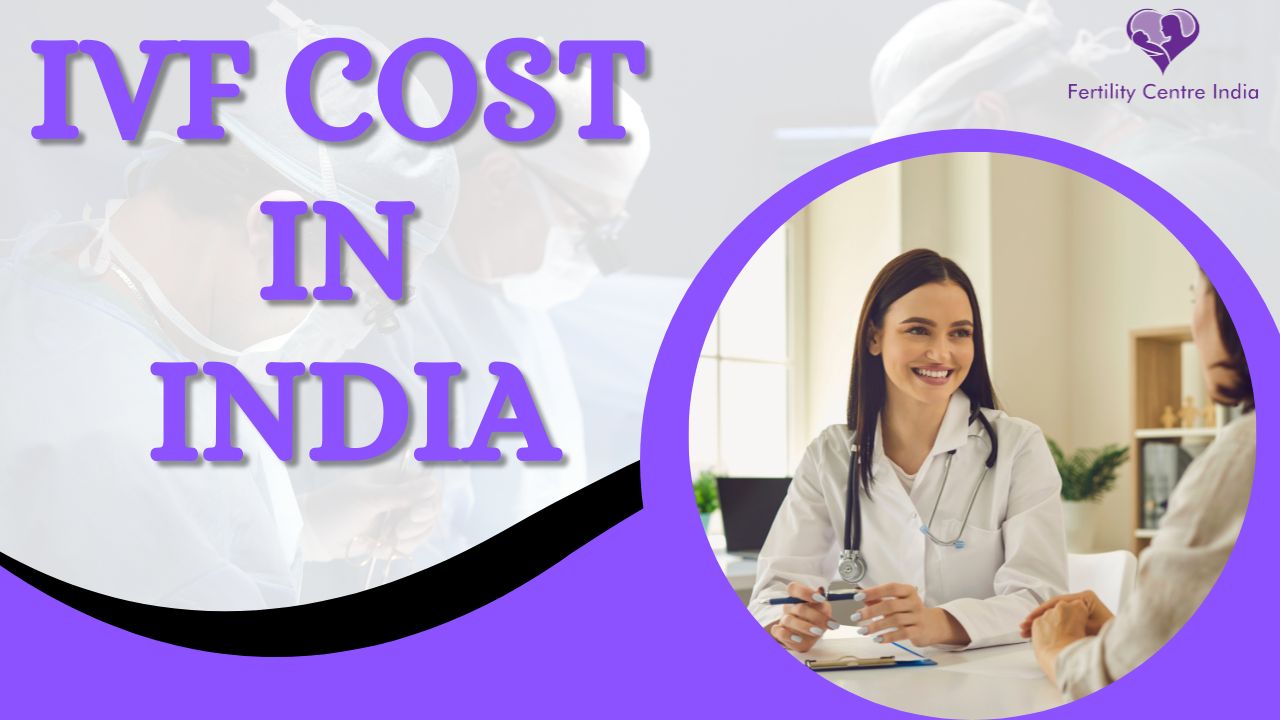In Vitro Fertilization (IVF) has revolutionized the world of fertility treatments, offering hope and possibilities to couples struggling with infertility. India has emerged as a prominent destination for IVF treatments, attracting patients from across the globe due to its world-class medical facilities, experienced fertility specialists, and relatively affordable IVF cost. This article delves into the factors influencing IVF cost in India, the breakdown of expenses, and financial assistance options, providi8ng prospective patients with valuable insights to make informed decisions on their journey to parenthood.

Understanding IVF
Contents
In Vitro Fertilization (IVF) is a modern assisted reproductive science that has furnished hope and pleasure to thousands and millions of couples struggling with infertility. This state-of-the-art system entails fertilizing eggs with sperm outdoor the woman’s physique in a laboratory setting, growing embryos that are then transferred returned into the uterus for plausible implantation and pregnancy. Understanding the IVF method is fundamental for potential sufferers thinking about this fertility cure option.
What is IVF?
IVF is a fertility treatment that involves the fusion of an egg and sperm in a laboratory setting to create embryos. It is suitable for couples facing various infertility issues, such as tubal blockages, male infertility, endometriosis, or unexplained infertility. IVF has also become a viable option for same-sex couples and individuals who wish to become parents.
The Significance of IVF in Treating Infertility
IVF is a groundbreaking advancement in fertility treatments, offering a ray of hope to individuals and couples facing challenges in conceiving naturally. It has successfully enabled countless couples to experience the joy of parenthood and overcome barriers that may have otherwise hindered conception.
The IVF Process: Step-by-Step Explanation
- Ovarian Stimulation: To increase the chances of success, the woman is administered fertility medications to stimulate the ovaries to produce multiple eggs.
- Egg Retrieval: Once the eggs reach maturity, a minor surgical procedure called egg retrieval is performed under anesthesia. A thin needle is used to extract the eggs from the ovaries.
- Sperm Collection: On the day of egg retrieval, the male partner provides a semen sample, which is prepared in the laboratory to isolate healthy and motile sperm.
- Fertilization: In the laboratory, the retrieved eggs and the processed sperm are combined for fertilization. This can be achieved through conventional IVF or Intracytoplasmic Sperm Injection (ICSI), where a single sperm is directly injected into an egg.
- Embryo Culture: The fertilized eggs develop into embryos in a controlled laboratory environment for a few days.
- Embryo Transfer: The best-quality embryos are selected for transfer into the woman’s uterus. This is typically done two to six days after egg retrieval.
- Pregnancy Test: Approximately two weeks after the embryo transfer, a pregnancy test is performed to determine if the procedure was successful.
Success Rates of IVF in India
The success rates of IVF in India vary depending on several factors, including the woman’s age, underlying fertility issues, the quality of embryos, and the expertise of the fertility clinic. On average, the success rates may range from 30% to 50%, but individual success rates can be higher or lower.
The Emotional and Psychological Aspects of IVF
Going through IVF can be genuinely challenging for couples, as it includes a rollercoaster of feelings, emotions, and vulnerabilities. Patients might encounter pressure, anxiety, and apprehension about disappointment. Fertility clinics frequently give guiding and support administrations to assist patients with adapting to the profound parts of the IVF journey.
IVF has brought renewed hope to couples yearning for parenthood, in vitro fertilization (IVF) has offered couples who are desperate to become parents newfound hope. Prospective patients can make well-informed decisions about this life-altering fertility treatment by comprehending the IVF process and its significance.

Why Choose Fertility Centre India For IVF Treatment?
The choice to pursue In Vitro Fertilization (IVF) is a considerable step in the journey to parenthood for couples going through infertility challenges. India has emerged as a favored destination for IVF treatments, supplying world-class scientific facilities, skilled fertility specialists, and a myriad of success stories. Here are compelling motives why couples pick Fertility Centres in India for their IVF treatment:
- State-of-the-Art Medical Facilities: Fertility Centres in India boast state-of-the-art medical facilities equipped with superior technologies and current laboratory setups. These cutting-edge facilities make a contribution to the success of IVF treatments and make certain the absolute best requirements of care for patients.
- Experienced Fertility Specialists: India is home to a gifted pool of exceedingly skilled fertility specialists, famed for their knowledge and talent in IVF treatments. These experts undertake a patient-centric approach, imparting personalised remedy plans to tackle individual fertility concerns.
- Affordability: IVF cost India is significantly lower in contrast to many different countries. The low cost treatment choices permit couples to avail of world-class IVF offerings barring compromising on the first-rate of care.
- High Success Rates: Fertility Centres in India have witnessed impressive success rates in IVF treatments, resulting in numerous successful pregnancies. The combination of skilled specialists, advanced technologies, and a nurturing environment contributes to these outstanding outcomes.
- Comprehensive Diagnostic Services: Fertility Centres in India offer comprehensive diagnostic services to identify and address underlying fertility issues accurately. These diagnostics aid in customizing the most suitable treatment plan for each patient, optimizing the chances of success.
- Patient-Centric Care: Fertility Centres in India prioritize the emotional and psychological well-being of patients. They provide counseling services, support groups, and a compassionate approach to alleviate the stress and emotional burden of fertility treatments.
- An Array of Treatment Options: Apart from IVF, Fertility Centres in India offer a wide range of fertility treatments, including IUI, ICSI, Egg Donation, Surrogacy, and more. This diversity enables fertility specialists to tailor treatments to each patient’s specific needs.
- Confidentiality and Privacy: Fertility Centres in India prioritize patient confidentiality and privacy. They maintain strict protocols to ensure that patient information is safeguarded at all times.
- Cultural Sensitivity: Indian Fertility Centres are well-known for their cultural sensitivity, respecting the diverse backgrounds of international patients seeking treatment in the country.
- Minimal Waiting Period: The efficient and streamlined processes in Indian Fertility Centres translate to minimal waiting periods for treatment, providing patients with timely access to fertility services.
Overall, Choosing a Fertility Centre India for IVF therapy opens a world of probabilities for couples aspiring to embody parenthood. The best combination of lower priced remedy options, superior clinical facilities, skilled fertility specialists, and empathetic affected person care has earned India its recognition as a main vacation spot for IVF treatments. Prospective parents can embark on their fertility ride with confidence, understanding they have chosen a Fertility Centre in India that values their goals and is committed to fulfilling their ultimate wish for a precious bundle of joy.

Factors Affecting IVF Cost in India
There are a number of factors that influence the overall cost of fertility treatments in India, and IVF costs can vary greatly. Prospective patients who have a solid understanding of these aspects can better plan their IVF journey and make well-informed decisions. Let’s examine the primary factors that influence the cost of IVF in India:
- Clinic Reputation and Location: The standing and area of the fertility center assume a significant part in deciding IVF cost. It’s possible that renowned clinics with experienced fertility specialists and high success rates will charge more. Moreover, centers situated in metropolitan urban areas or well known clinical the travel industry objections might have greater expenses contrasted with facilities in more modest urban communities.
- Type of IVF Procedure: The type of IVF procedure required can significantly impact the overall cost. Traditional IVF, which involves fertilizing eggs with sperm in the laboratory, is generally more affordable than advanced techniques like Intracytoplasmic Sperm Injection (ICSI) or Frozen Embryo Transfer (FET). ICSI, which involves injecting a single sperm directly into an egg, is commonly used in cases of male infertility but comes with additional costs.
- Inclusion of Medications: Fertility medications used to stimulate egg production can add to the IVF cost. The type and dosage of medications required may vary based on individual patient needs. Medications are essential to stimulate multiple egg production, thereby increasing the chances of successful fertilization and embryo development.
- Advanced Techniques: Advanced techniques used during IVF, such as Preimplantation Genetic Testing (PGT) or Assisted Hatching, come with extra charges. PGT allows screening embryos for genetic abnormalities before transfer, while Assisted Hatching helps with embryo implantation. While these techniques can improve IVF success rates, they also add to the overall expenses.
- Number of IVF Cycles: The number of IVF cycles required can significantly impact the total cost. Some patients may require multiple IVF cycles to achieve pregnancy, which increases the overall expenses. Factors such as age, fertility history, and underlying health conditions can influence the number of IVF cycles needed.
- Experience of the Fertility Specialist: The expertise and experience of the fertility specialist handling the IVF procedure can influence the cost. Highly experienced specialists with a successful track record may charge higher fees for their services. However, choosing an experienced and skilled specialist can enhance the chances of a successful outcome.
- Anesthesia and Operating Room Charges: During the egg retrieval procedure, anesthesia is used to ensure patient comfort. Anesthesia charges and operating room fees may contribute to the IVF cost. While these charges are relatively smaller in comparison to other expenses, they are still a part of the overall cost.
- Additional Procedures and Treatments: Patients may require additional procedures or treatments during the IVF process, depending on their specific fertility needs. These could include additional tests, diagnostic procedures, or treatments to address underlying fertility issues, further contributing to the overall cost.
It is fundamental for imminent patients to examine the expense breakdown with the picked ripeness center prior to continuing with IVF treatment. While some clinics may have an itemized fee structure, others may offer package options that include particular services. Patients ought to look at costs, think about their singular necessities, and focus on the nature of care and achievement rates while choosing a ripeness facility for their IVF journey. Patients looking for IVF treatments in India at a price they can afford can also get help by asking about financial aid or payment plans.

Breakdown of IVF Cost in India
The cost of In Vitro Fertilization (IVF) in India can be influenced through a number elements and can fluctuate depending on man or woman affected person wants and the chosen fertility clinic. Understanding the breakdown of IVF value is fundamental for potential sufferers to graph their funds and make knowledgeable decisions. Below is a complete breakdown of the prices concerned in IVF treatment in India:
- Initial Consultation and Diagnostic Tests: An initial consultation with the fertility specialist kicks off the IVF process. During this interview, the specialist evaluates the patient’s clinical history, directs an actual assessment, and suggests explicit indicative tests. These tests might incorporate blood work, chemical level evaluations, ultrasounds, and semen examination for the male accomplice. The initial consultation and diagnostic tests can cost anywhere from 5,000 to 15,000 Indian Rupees.
- Ovulation Induction and Medications: Ovulation enlistment is a basic move toward IVF to invigorate the ovaries for numerous egg creation. Richness prescriptions, including gonadotropins and chemical infusions, are endorsed to improve egg advancement. The dosage required and the patient’s response to treatment can influence the cost of these medications. Ovulation induction and medications typically cost between INR 60,000 and 100,000.
- Egg Retrieval and Sperm Collection: The surgery to recover mature eggs from the ovaries is a fundamental piece of IVF. To ensure the comfort of the patient, this procedure is carried out under anesthesia. At the same time, sperm is gathered from the male accomplice or a sperm benefactor. The total cost of collecting sperm and retrieving eggs ranges from INR 30,000 to 50,000.
- Laboratory and Embryo Culture: In the laboratory, the retrieved eggs are fertilized with the collected sperm, and the resulting embryos are cultured for a few days before transfer. The laboratory charges cover the skilled embryologist’s services, the use of specialized equipment, and the culture media. The cost of laboratory and embryo culture can range from INR 30,000 to 60,000.
- Embryo Transfer: The embryo transfer is the final step of the IVF process, where the developed embryos are carefully transferred into the uterus using a thin catheter. This is a crucial moment in the treatment, and the success of the transfer greatly affects the chances of pregnancy. The cost of embryo transfer typically ranges from INR 15,000 to 25,000.
- Cryopreservation (Embryo Freezing): Any viable embryos that are not transferred immediately can be cryopreserved or frozen for future use. The cost of cryopreservation varies depending on the number of embryos to be preserved and the clinic’s storage fees. On average, the cost of cryopreservation can be around INR 20,000 to 40,000.
- Preimplantation Genetic Testing (PGT): PGT is an optional procedure that involves screening embryos for genetic abnormalities before transfer. This procedure is recommended for couples with a history of genetic disorders or recurrent miscarriages. The cost of PGT can add an additional INR 20,000 to 50,000 to the overall IVF cost.
- Assisted Hatching and Other Techniques: Some fertility clinics offer additional techniques, such as assisted hatching, embryo glue, or embryo grading, to improve embryo implantation and success rates. The cost of these optional techniques can range from INR 10,000 to 30,000.
It is essential to observe that the IVF value can additionally be influenced with the aid of the variety of IVF cycles required, as some sufferers may also want a couple of tries to gain a profitable pregnancy. Patients must additionally reflect on consideration on the value of follow-up consultations and any extra redress that may also be required after a profitable implantation.
By having a clear breakdown of the IVF cost in India, potential sufferers can higher diagram their economic assets and make knowledgeable choices about their fertility therapy journey. It is really useful to seek advice from with the chosen fertility health facility to acquire a customized price estimate and discover any reachable economic help preferences to ease the monetary burden of IVF treatment.

Insurance Coverage and Financial Assistance
Insurance Coverage for IVF in India
The insurance company and the specific policy determine how much IVF treatments are covered by insurance in India. While some protection plans might cover specific parts of infertility treatments, including symptomatic tests and meds, inclusion for the whole IVF strategy might be restricted. In order to determine the extent of coverage for fertility treatments, it is essential for individuals seeking IVF treatments to thoroughly review their insurance policy and communicate with their insurance provider.
It is essential to note that IVF is in many cases considered an elective method as opposed to a restoratively important one, which can influence protection inclusion. As a result, IVF treatments may not be covered by all insurance plans, leaving patients to foot the majority of the bill on their own.
Financial Assistance and Payment Plans
For individuals without sufficient insurance coverage or facing financial constraints, various financial assistance options and payment plans are available in India to help manage the cost of IVF treatments.
Government Schemes: In order to provide couples seeking IVF and other fertility treatments with financial assistance, some Indian states have launched government-sponsored initiatives. These plans mean to make fertility treatments more open and reasonable to a more extensive populace.
Fertility Clinic Packages: To alleviate patients’ financial burden, many fertility clinics provide discounted treatment packages or payment plans. In order to provide options that are more cost-effective, these packages may include multiple IVF cycles or bundle services.
Non-Profit Organizations: In India, a number of non-profit organizations are devoted to providing grants and financial assistance to people undergoing fertility treatments. The mission of these organizations is to assist couples in starting a family.
Medical Loans: A few monetary organizations offer clinical credits with adaptable reimbursement choices unequivocally intended to cover the costs of fertility treatments like IVF. To pay for their treatment, patients can look into these loans.
Employee Health Benefits: Infertility treatments, such as IVF, are covered by some health insurance policies. Representatives can ask with their HR divisions about accessible advantages and repayment choices.

IVF Cost: India vs Other Countries
India is frequently regarded as a more affordable destination for fertility treatments than many other nations, and the cost of IVF varies greatly between them. Let’s contrast the cost of IVF in India with those in some other well-liked medical tourism destinations:
- India: India has emerged as a top destination for IVF treatments due to its world-class medical infrastructure, experienced fertility specialists, and relatively lower treatment costs. On average, the cost of a single IVF cycle in India can range from $2,500 to $4,500 USD. The availability of affordable IVF treatments in India has attracted patients from various countries seeking high-quality medical care without exorbitant expenses.
- United States: Another well-liked location for IVF treatments is the UK, which is recognized for its strong healthcare system. An average single IVF cycle in the UK costs between£ 5, 000 and£ 8, 000 GBP( approximately$ 6, 500 to$ 10,500 USD), which is higher than the average cost in India.
- United Kingdom: The United Kingdom is another popular destination for IVF treatments, known for its well-established healthcare system. The cost of IVF in the UK is generally higher than in India, with an average single IVF cycle costing around £5,000 to £8,000 GBP (approximately $6,500 to $10,500 USD).
- Thailand: Thailand is becoming increasingly popular for medical tourism, including fertility treatments. The cost of IVF in Thailand is generally more affordable than in Western countries but can be slightly higher than in India. On average, a single IVF cycle in Thailand may cost around $4,000 to $6,000 USD.
- Spain: Spain is renowned for its cutting-edge fertility clinics and specialized treatments. The cost of IVF in Spain is comparable to that of the USA and the UK. On average, a single IVF cycle in Spain can cost around €5,000 to €8,000 EUR (approximately $5,800 to $9,300 USD).
- Czech Republic: The Czech Republic is a popular destination for affordable IVF treatments in Europe. The cost of IVF in the Czech Republic is generally lower than in Western European countries. On average, a single IVF cycle in the Czech Republic may cost around €3,000 to €5,000 EUR (approximately $3,500 to $5,800 USD).
In summary, India is a desirable location for couples looking for fertility treatments at more reasonable prices without sacrificing quality care because of its competitive edge in IVF costs. When selecting the best location for IVF treatment, it is crucial to take into account additional factors like the expertise of the fertility specialists, clinic success rates, and overall medical infrastructure. To make an informed choice that meets their unique needs and budget, prospective patients should thoroughly research and consult with fertility clinics in different nations.

Conclusion
IVF costs in India can vary depending on a number of factors, prospective patients need to be aware of the costs and look into options for financial assistance. India’s growing reputation as a top destination for fertility treatments gives couples hoping to start a family new hope because it has world-class medical facilities, skilled fertility specialists, and relatively low IVF costs. Prospective patients can embark on their IVF journey with confidence knowing that they are well-prepared to navigate the path to parenthood by gaining a comprehensive understanding of IVF expenses and available financial support.
FAQ
1. What is the average cost of IVF in India?
The average cost of IVF in India can vary depending on factors such as the location of the fertility centre, the expertise of the fertility specialist, and the specific treatments required. On average, IVF costs in India can range from INR 1,50,000 to 3,00,000 per cycle.
2. Does the IVF cost cover all expenses involved in the treatment?
The IVF cost typically includes initial consultations, fertility medications, egg retrieval, embryo culture, and embryo transfer. However, additional procedures like Preimplantation Genetic Testing (PGT) or Frozen Embryo Transfer (FET) may incur extra charges.
Reputable fertility centres in India are transparent about their IVF costs. However, patients should inquire about any potential additional expenses, such as diagnostic tests, anesthesia, or storage fees for frozen embryos.
4. Do insurance plans cover IVF treatments in India?
As of now, insurance coverage for IVF treatments in India is limited. Some insurance providers may offer partial coverage for certain medical conditions that necessitate IVF, but it varies between insurance plans.
5. Are there any financial assistance options available for IVF in India?
Some fertility centres in India offer payment plans and financial assistance programs to help patients manage the cost of IVF. Additionally, patients can explore organizations and foundations that provide grants or support for fertility treatments.
Read Also:
- Best Egg Donor Agencies in India: Find Your Perfect Match
- Traditional Surrogacy Legal in India: Understanding the Regulations and Current Status
- IVF Agency in India: Expert Fertility Solutions and Personalized Care
- Surrogacy Cost in Panchkula: Exploring Factors, Prices, and Options for Prospective Parents
- Surrogacy in Chennai: Trusted Surrogacy Services and Clinics

